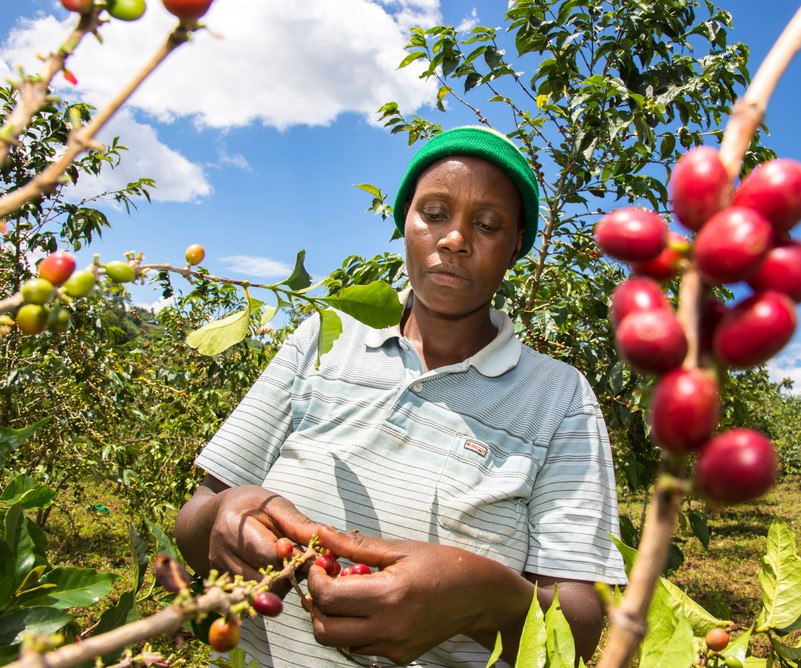The AGRF’s call for Food Systems Action, Action, Action
Recently I joined nearly 6500 (!) deeply engaged colleagues at the African Green Revolution Forum AGRF 2022 in Kigali, Rwanda to lay my ear to the ground. What common priorities did I hear, what concerns and what calls to action? Here are the themes that caught my attention.
Think food systems, and act to change them
Food systems were the core perspective of all discussions and propositions, and there was a recurrent call to act now to transform them. This systems perspective clearly continues from the UN Food Systems Summit last year and reflects the widespread recognition of the need to deal with complex issues in an integrated manner, and not hope that the sum of individual actions will add up to systems change.
Challenges are inter-connected, and so must be the solutions. There was much talk of compound, complex crises such as CCC (climate, conflict, covid) and FFF (food, fuel, fertilizers). Some intriguing figures: across Africa fertilizer use is less than 10% of that in China, which has a major negative impact on yields; Africa contributes less than 4% of greenhouse gases, yet is the most impacted continent in terms of climate change; only 4% of agricultural land in Africa is irrigated, while 40% is readily achievable. Resilience to food system shocks was therefore high on the agenda, as well as recognition there are major steps that can be taken, if these become policy and investment priorities.
This systems thinking also meant that nutrition security was high on the agenda, as well as making sure food systems strengthen – rather than erode – the ecosystems they depend on as part of necessary resilience. My friend Alex Rees covers this well in his blog.
Farmers at the heart
In every session I heard the call to make systems change farmer-centred. Many agreed that this is where action is needed. Only a few conversations, though, touched on the difference between farmers: those who do it mainly to feed their families and to create a social safety net versus (semi-)commercial, larger-scale farmers. The strong representation of big agribusiness at the AGRF pushed the attention to commercial farming. Even where there were a number of farmer groups in panels they were certainly not centre stage. This ignored the need to prioritise very different approaches to effectively supporting small-scale farmers vs commercial farmers.

Farmers harvesting coffee crops in the Lake Kivu region of Rwanda (photo: Ilene Perlman / Shutterstock.com).
IFAD’s 2021 Rural Development Report spells out how rural people’s livelihoods now combine farming with other sources of income to meet their needs. Systemic change will be needed to reshape the deeper structural economic, political and cultural factors that inhibit equitable livelihoods for rural people, and that inhibit the creation of a healthy and sustainable food system.
Taking things forward: leadership, research, information, investment
Four things kept recurring in the many calls to action.
- Leadership: There is a need for good leadership to take action-oriented, systems-thinking agendas forward. This involves the need to find and invest in the capacities of the right kind of leaders.
- Research: The need for science-based action plans was emphasised by all, from President Paul Kagame of Rwanda to multiple session contributors.
- Information: Stakeholders need useful information, not just data. Data needs to be analysed, made understandable and relevant. This is what will inform and support necessary decision making by leaders.
- Investment and trade: The opening keynote of the AGRF pointed to the massive underinvestment in agriculture. Across the continent the sector generates 16% of gross value addition and nearly 50% of employment, yet it receives less than 5% of investments. Later sessions pointed to proven 10-fold returns on any investment in the sector in terms of development goals. Even greater opportunities were seen if better use is made of the multiple regional and continental free trade agreements.
Shifting relationships
A final striking point for me was the particular interest in what Africa can learn from and work on with countries in Latin America and Asia, particularly China. The recent Africa-Americas Ministerial Summit on cooperation to counter global food security threats was the first of its kind, and was heavily referenced at the AGRF. The tone in the room was that this cooperation had enormous potential value and would certainly shift relationships with Europe and the US. Bring in the enormous demand from Asia for Africa’s surpluses and it was clear to me that relationships in global food systems are set to shift significantly.
I left with the confidence that the African Food Fellowship is meeting a real need to connect, support and highlight leaders who will act, act, act to shift their food systems. And that Wageningen University & Research can continue to welcome guests across Africa, if we listen well and share openly.
Lead photo: Oscar Espinosa / Shutterstock.com


Hello Joost
I do agree with your take home points on the pertinent issues that were raised at the just ended meeting in Kigali. These issues some though not all of them have been known for quite some time but the amount of energy required to bring tangible impacts is missing and it is of great concern to me. The these various value chains that support these food systems are well mapped and document but getting them to work is very hard and why.I would not want to put the blame on people or individuals but targeting it on institutions that have become insensitive and dysfunctional to the plight of the food systems.
One can list a lot of challenges in terms failure of institutions who are charged of stimulating the changes needed be it political or financial or research or implementation. At the end of the day it points to lack of excellent competent leadership that can move stuff.
A lot of conferences or workshops have been held nationally, regionally and internationally decorated and punctuated with nice beautiful speeches and it ends there. After these meeting only a few privileged can attend them or can access the information via various social media while the rest of the players do not know what is happening out there but they are the very people whose livelihoods depend on these food systems and immensely contributes to them.
In these meetings you hear many projects or initiatives that are being done to bring change and the money involved is not small in some cases.One wonders now out of all that money that has been blown what is the impact on the ground. With few publications produced out of these interventions does it justify value for money and time?
Any development agenda that does not contextualise its approach and lacks exclusivity in its approach will never be sustainable.Next year we shall have another meeting somewhere and the same sermons will be told and food insecurity continues to bite.
True and I repeat true transformation of these food systems where ever they can be applied or they are needed requires disrupting technical and institutional arrangements currently in place in order to allow innovation to emerge.Short of that we are just barking at the wrong tree.Real action is needed now.The world does not need conferences for speeches but needs conferences to honour those who would have done well in the food systems. Availing access to finance to the various key players in the food systems will go a long way. This can be done through paying for the inputs not necessarily giving the actors hard cash if we really mean business.It can not be business as usual if we are to see the changes we want.
Giving or promoting use of right inputs alone is not enough but access to them in time and in the rightful place supported by good teachings on how to use them especially extension will go a long way in making change.